Since joining dBs Bristol, Máté Moldován has proved to be one of the most innovative and inspiring students we've encountered. Possessing an incredible ethos and work ethic to match, his portfolio contains some truly exciting projects and now he's taking those skills into the real world, all alongside his studies.
We joined Máté to talk about his new album 'Dreams' and its wider context as part of the fascinating Catalog series, his work on dBs Pro's project for Charisma.a.i. and his new job at Immersion Plus as their Game Audio Implementer and Sound Designer.
Finding the beat
"I was motivated by my passion for music, but also by fear. Fear of getting old and not doing something that I love and not fulfilling my talent." Speaking with Máté for just a couple of hours is enough for us to take a look at ourselves and ask if we're really fulfilling our potential. There's a touch of dread at this thought, but mostly we're just inspired.
Born and raised in the city of Szeged in Hungary, Máté was exposed to music from an early age, a decision made for him as his dad's country band's rehearsal room was right next to his bedroom, "so my music education began pretty early!"
It wouldn't take long for him to follow in his father's footsteps, and at the age of 6 years old he started taking drum and percussion lessons.
“I was instantly connected by rhythm and sound within the class of percussion and this was where I first realised I wanted to express myself beyond those things and create my own music.”
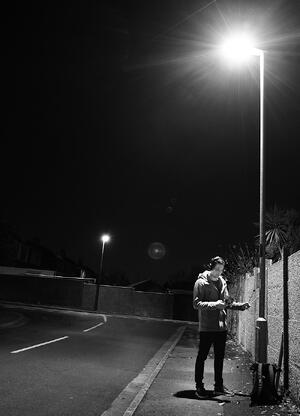 Because of his father's musical background, Máté had already begun picking up the guitar before beginning his formal education.
Because of his father's musical background, Máté had already begun picking up the guitar before beginning his formal education.
The next 14 years would be spent learning classical percussion, which was where he first got hands-on with piano. There was also the inevitable rock band phase, and the genre itself remains a constant source of joy and inspiration.
Upon graduating, Máté started taking the steps towards moving to the UK, and after spending two years in Budapest, he made the move to London in 2012.
After five years in the capital, where he'd begun teaching himself music production, he and a group of friends relocated to Bristol to start a new band together, but it never came to fruition. It was at this point that Máté knew he needed a change.
"I realised I didn’t want to be held back by waiting for others. It was the same reason I’d started music production in London. So then I started to think of new areas of audio that I could get into."
Owing to his background in percussion, Máté had already become fond of sitting in the background as the soloists took centre stage. Coupled with an overwhelming desire to break free of the rules and conventions imposed upon him through his classical training, he naturally felt himself drawn to game audio.
"It is the space for a composer or sound designer to be free. So far, my experience shows that you will rarely be told what not to do, you will instead receive references and guidance of what style of sound the developer/director is looking for. I’ve never liked the strict rules you need to follow when composing a classical piece or a radio tune or club mix. Game music is freedom for the musician!
Cataloguing dreams
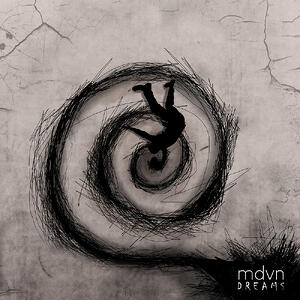
Now on the cusp of entering his third and final year at dBs Bristol, we're seeing some of his most exciting work, namely the release of his new album 'Dreams' and the Catalog series.
"The album represents my average sleeping schedule, which becomes obvious to the listener when they look at the titles of the songs. I’m using an ostinato as the leading motif throughout the album, which appears in the first song, Eyes Closed.
"Just like in a dream, when you close your eyes and start thinking of something - like evaluating your day, or bringing up old memories - these thoughts will most likely set the 'main theme' of your dream.
"There are further explanations in my videos’ description box that I call Easter Eggs, because I was worried that people wouldn’t find these straight away, and the goal is for these albums to show the storytelling capabilities of the music I write. I’m planning to bring more albums to the Catalog palette, styles that I think are my strengths, like jungle, space, rock and orchestral stuff as well."
The Catalog series that Máté mentions is a fascinating new way of packaging music and is one that opens up a wealth of creative opportunities. Interestingly, the idea was borne from a very real need to showcase everything he had to offer.
"The work-based learning module opened my eyes and made me come up with this idea. I revisited my portfolio website that was created in the first year’s Portfolio module, and I noticed two things.
"One, there’s not enough variety in the music that would showcase the styles that I’m comfortable working in. They are just songs, they don’t really tell the listener the thoughts and ideas I put behind my composition. A game is all about its story; so why would showcasing game music be any different. I had to find a way to communicate my story with people.
"And two, in order for someone to hear my music they have to visit my website. I wanted people to just accidentally come across my music on various music streaming platforms, just like I discover new artists every day when I do my administration work and put on a calm / not too distracting playlist.
"So I said to myself: 'hey, I can do that too!"
Sonic storytelling
Outside of his personal creative endeavours, Máté proved to be an instrumental part of a large-scale project alongside Brighton-based Charisma.a.i and our commercial arm, dBs Pro.
After developing a series of interactive graphic novels through the Charisma app on iOS and Android, the team at Charisma.a.i commissioned dBs Pro to create the original score, sound design and implement this audio into their latest story; Sherlock and the Vampires of London. This was Máté's moment to shine.
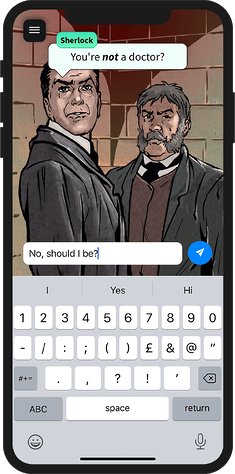 "I was the audio implementer and sound designer for the Charisma.a.i project. We were recording composition and music materials, then produced the app music together. Then I carried out some sound design effect recording sessions and editing.
"I was the audio implementer and sound designer for the Charisma.a.i project. We were recording composition and music materials, then produced the app music together. Then I carried out some sound design effect recording sessions and editing.
"I also had to edit the final compositions to be ‘unnoticeably’ loopable and to have nice transitions working with the sound effects when the player turns to the next page. That was a very challenging procedure actually, especially as we had just 2-3 weeks to finish three episodes (one episode is around 45 minutes of gameplay)."
Máté was dropped in the deep end on this project, not just because of the time constraints, but also the systems that Charisma were using. However, he was more than up to the task.
"My knowledge of middleware and audio implementation options that I’ve acquired from my studies in dBs came in really handy in this situation. I understood and felt comfortable with the app’s audio engine within an afternoon, and could start thinking of how are we going to implement the sounds in the application.
"Spreadsheets were the real hero in helping me stay on top of this project, though. Following and documenting the procedure stages like spotting a place for a sound that is needed, creating the sound, compressing it to the right format and size, placing it under the right picture with the right looping or one shot option selected, and finally testing it in game. These were repeating steps of the implementation, and once I got the hang of it, it was manageable.
"Knowing my colleagues and team mates was also really important in those two weeks. I was in direct contact with the creators of Charisma.a.i., which meant if I had to double check anything regarding the audio engine or anything, I could ask freely."
Are you immersed?
In the summer of 2020, Máté landed a job with tech company Immersion Plus, as their Game Audio Implementer and Sound Designer for their new action title, Project Boost.
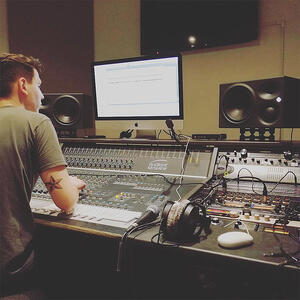
"It was pure luck," says Máté after we ask how it all came about. "I was the right person at the right time with the sufficient knowledge.
"Originally, I applied for the composer position and then they looked at my website and realised that my knowledge of Wwise and audio implementation in Unity would be invaluable for their game.
"Early on into the project I also realised that all the sounds need redesigning, so I became not just audio implementer but their sound designer as well."
Despite not being taken on as the composer, Máté would still be able to share his experience with Italian composer, Simone Cilio who was brought in to write the score, as it was his first time writing for video games.
"Because he’s [Simone] a film composer and is used to working with a linear timeline as opposed to the games' non-linear nature, I explained that you need to imagine game music like you would any other track. You're working on it for days, so when you finish in the evening you start to have new ideas, variations or alterations that you would really want to put in your music, but you can’t because it wouldn’t fit in the final product.
"But in game music you can have as many variations as you want of your theme, because the game will probably have places and situations in which you can use them. So you don’t need to sacrifice or waste an idea."
Project Boost is currently in development, and due to the effects of COVID-19 has had to push back the release of its first playable demo. For now, you can see the game in action in the teaser below.
Final thoughts
Even though Máté has another year remaining of his course, and may even go on to study at Masters level, the work he has been doing outside of his studies has already paved the way for a bright future after education. At the end of our chat we asked him what the most valuable lessons are that he's learned from his many projects.
"I’ve learned that the time you get to finish the production is commonly overlooked by the publishers/creators. I’ve also learned that I need to be quick with my production. The sound and/or music creation is just a step in the production line. So I gotta be quick!
"I've also learned to just ask the questions that you’re afraid will make you seem stupid. The more engaged in the project you seem, the more enthusiasm shines through your communication, the better relationships you build! Your employer needs to see that you want that project, you want to be part of it, because you believe its success."
FIND OUT MORE
https://soundlister.com/portfolio/mate-moldovan/
SoundCloud
Twitter
Instagram
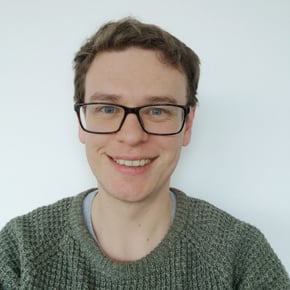

.jpg?width=300&name=M%C3%A1t%C3%A9%20Moldov%C3%A1n%20(Featured%20Image).jpg)